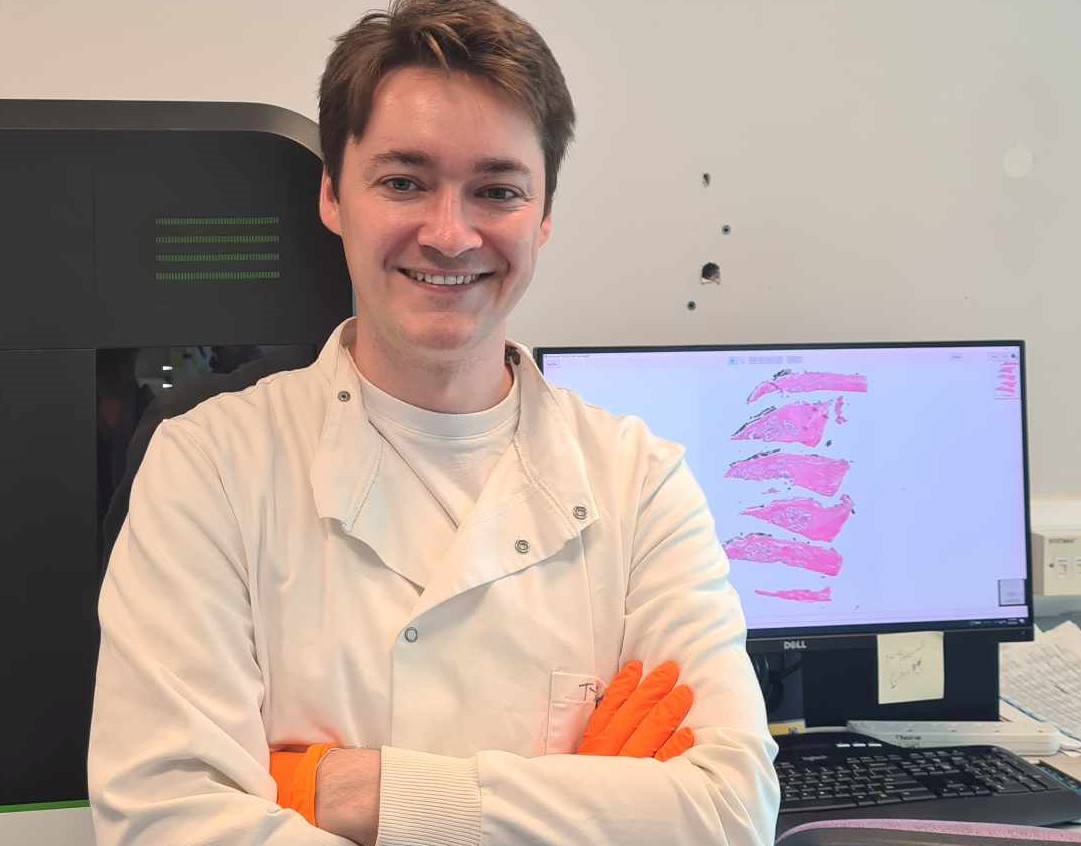
Prostate Cancer
Advanced Prostate Cancer
Advanced (metastatic) prostate cancer is cancer that has spread from the prostate to other parts of the body, most commonly to the bones and lymph nodes. It’s not currently possible to cure advanced prostate cancer.
Survival rates for men with advanced prostate cancer are poor; the shocking statistic is only 30% of men survive 5 years. These men are in desperate need of our help. Our cancer research team is focusing on developing new and better targeted treatments to help keep advanced prostate cancer under control, manage symptoms, and ultimately extend the lives of men with advanced prostate cancer.
We have been able to carry out this work due partly to the generosity of Univar, who has supported us for many years. They recently funded a PhD studentship which has been completed by Chris Smith.
Chris’ research investigated an aggressive life-threatening form of advanced prostate cancer – NEPC (Neuroendocrine Prostate Cancer), which is underdiagnosed and has very poor clinical outcomes with very few treatment options. . No other group is investigating this in the UK.
Identifying and treating NEPC
Chris’s work has led to several exciting discoveries.
Firstly, unique proteins secreted by the cancers cells as they transform from conventional prostate cancer to NEPC are detectable in cancer cells and cancer tissue.
Secondly, Chris has found that the development of NEPC causes profound changes in the prostate cancer tissue, and creates an environment where immune based treatments may be effective. These treatments, are readily available as they are used to treat other cancers, do not normally work in conventional prostate cancer.
- HOX genes are a group of genes involved in the development of a fetus; if these genes are later ‘switched on’ again in later life, they been shown to contribute to cancer development and progression in a multitude of cancer types. They have also proved to be useful biomarkers for disease prognosis, progression, and potential diagnosis.
- The team is also investigating the HOX gene landscape in NEPC, how they can be used to non-invasively detect and diagnose the disease and how we can target them to treat men with NEPC.

Dr Tyler Wooldridge is now continuing this research in the labs. He is in the pre-clinical testing phase for novel therapies that have been shown to be effective in targeting NEPC and could lead to a new treatment.
Work is also underway to examine and characterise the immune landscape changes from early prostate cancer through to NEPC, which will provide us with a better understanding of the biology of this disease and guide further research as to whether patients with NEPC could benefit from immunotherapy-based treatments



